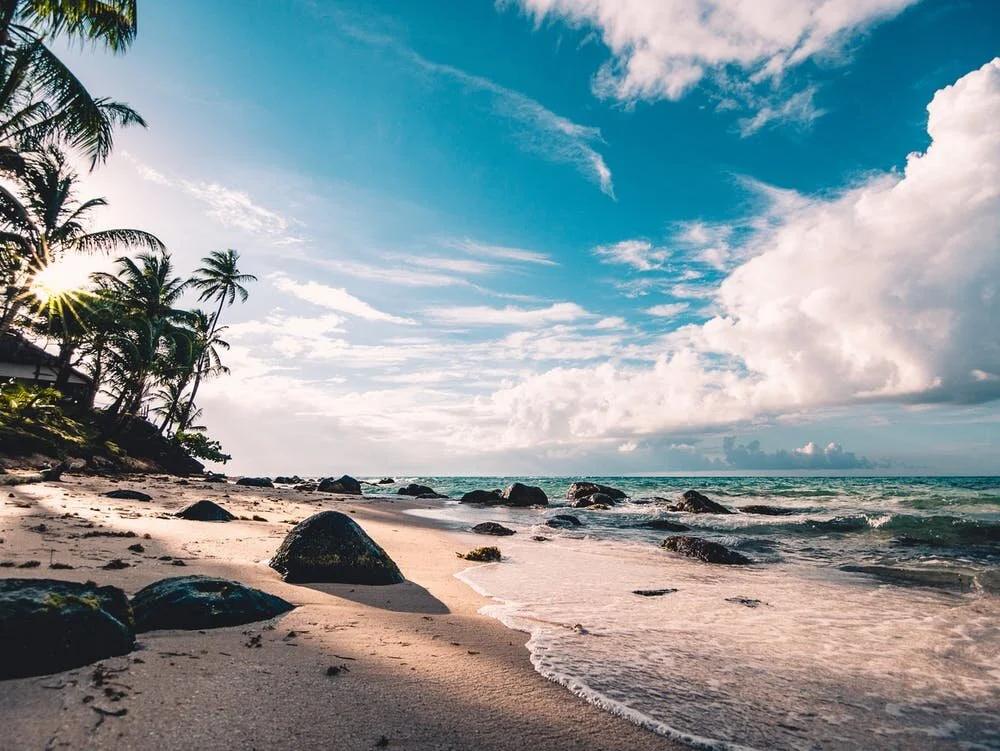This current pandemic has made us all stop and think a bit. Especially about the path we’re on as a society. It’s caused lots of pain and suffering worldwide, from hundreds of thousands of lost jobs to death. And it’s important to take a moment to reflect – what are we learning from this?
If we think about the ENVIRONMENT for one second, we’ve recently seen some of the biggest wildfires and hurricanes, and now this. Scary stuff.
But maybe this pandemic – which has forced us to slow down, only grocery shop when it’s absolutely necessary, use our cars much less and consume less overall – has it’s positive side.
With carbon emissions climbing, temperatures rising, and weather getting more unpredictable, we are FEELING, undeniably, the threat of the changing climate. But often, we forget and ignore (I think mostly because we can’t SEE these harmful greenhouse gases). We are all guilty of this at times.
But it’s real, and it’s hurting our world.
So I love the initiative of global Earth Day as a gentle REMINDER that we need to step it up and start protecting our wonderful, giving planet.
And personally, I find Earth Day to be more relevant than ever. We all need to be reminded that its our job, every single one of us, to take care of this planet and be better citizens of this Earth. We can’t just go back to the way we were living before this crisis.
Every action we take has an impact for the Earth – every time we buy, we consume, we throw away waste, we turn on lights, we use water,…it all has an impact.
So what can we do?
1. Make less garbage: Use and throw away LESS PLASTIC.
There's a lot of plastic lingering out in the world. Like, a lot. Scientists are scrambling to find solutions in the form of large-scale ocean clean-up operations and plastic-hungry microbes, but the 9.1 billion tons of plastic our species has created (and counting) wouldn't exist if we didn't use and throw away so much stuff.
I offer a bunch of tips for reducing plastic HERE, but the idea is simple: replace disposable plastic items with reusable and more biodegradable options. Examples:
· Use reusable silicone bags instead of disposable plastic ziplocks
· Use cloth bags for your groceries
· Use your steel cutlery instead of plastic forks/knives/spoons, oh and of course, straws! (more on this below)
· If you need to use plastic, try to properly clean and reuse it a few times before tossing
2. Please DITCH PLASTIC STRAWS. Never buy again.
Because of their size and shape, they're basically impossible to recycle. In addition to littering our landfills, they also wind up in the ocean and can cause serious harm to marine animals.
· Buy metal or glass straws (I sell some in Balance Studio)
3. Eat LESS ANIMAL protein and MORE PLANT-BASED foods.
Plants require much less energy and water than raising animals for food, not to mention the toxic emissions from livestock. Cattle ranching is one of the main reasons we’re losing forests in the Amazon (one of our main sources of oxygen!) and it accounts for an estimated 70% of the loss of this forest land.
I’ve read that on average, switching 1 meal with meat to 1 meatless meal can reduce environmental damage (measured by carbon footprint) by 40%.
Image, a veggie burger (like the beyond burger) produces 90% fewer greenhouse emissions and uses 90-99% less water than the equivalent beef burger.
With that in mind:
· Try implementing one day a week that you only eat vegetarian, ex. Meatless Mondays
· Maybe go a step further and commit to one or two meals per day being vegetarian (ex. breakfast and dinner vegetarian, and only animal protein at lunch) – you’ll help the planet but also your wallet!
· Challenge yourself and join my 14-day Vegan plan. You’ll learn SO much, get WAY healthier, and it’s a great jumpstart to a lifestyle with a bit less meat.
4. WASTE LESS. Less food, less water.
A massive amount of energy goes into producing the food we eat (especially meat and dairy, as mentioned above). Lots of the food waste happens on the larger industrial scale, but there are still things we can do at home to help.
· Buy only what you need
· Use veggie stems/scraps that you usually discard for making homemade broth (just freeze until ready to use)
· Serve yourself what you will eat, and freeze leftovers
· Compost what you can of food scraps
· As for water: turn off the water while you shampoo and conditioner. Turn off water while you’re brushing your teeth. Be conscious of how much water you use when washing. If you have an efficient dishwasher, they tend to waste less water than washing by hand.
5. Help to LOWER GAS EMISSIONS: Use your CAR less.
· Carpool. Drive together with a friend or family member instead of each one taking their car.
· Maybe make the switch to a hybrid or fully electric car if that’s an option. I’m hoping to eventually.
· When you’re shopping online, try to buy in bulk to reduce multiple deliveries, which can help cut carbon emissions from delivery trucks.
· Walk more and try using a bicycle (if you live in a neighborhood that allows for it). Ideally we should be both driving less and flying less (as mentioned in my intro, sadly, there is a positive of this current crisis)
6. SPEND MORE TIME IN NATURE. Remind yourself that Nature is giving, is beautiful and is ours to enjoy if we take care of it!
· Go for walks/hikes outside (somewhere with very few people and lots of nature). Stop and hug a big tree. Honor mother nature and the miracles it provides us.
· Try planting more plants! Even one more plant will help.
· If you have access to a beach (with few people), go. Walk barefoot on the sand and swim in the ocean. And please, if there is trash on the beach, pick it up and throw in the nearest trash can. We NEED to take care of our beaches and oceans.
There are thousands more things we can all do, but just START by being more conscious, and then try applying these 6 tips (or the ones that you can, now). And of course, keep researching about other things you can do. If we all at least try, we will make a difference.



